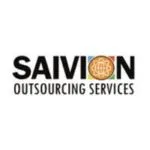
Top Cloud Infrastructure Companies
Unveiling the Cloud: A Guide to Top-Rated Infrastructure Providers
The digital landscape is soaring to new heights, and cloud infrastructure is the wind beneath its wings. Businesses of all sizes are embracing the flexibility, scalability, and cost-efficiency of cloud solutions. But with a multitude of cloud infrastructure providers vying for your attention, choosing the right one can feel like navigating a virtual labyrinth.
Fear not, tech-savvy entrepreneurs and IT leaders! This comprehensive guide serves as your one-stop shop for the top-rated cloud infrastructure companies. Here, we’ve meticulously curated a list of industry leaders, rigorously researched and reviewed by experts and users alike.
This guide goes beyond just listing companies. We delve into their strengths, service offerings, and user experiences, empowering you to make informed decisions based on your specific needs and budget. Dive in and discover the best cloud infrastructure providers, ready to propel your business to new heights in the ever-evolving digital world!
List of the Best IT Companies

-
Employees: 11 to 50
-
Min. Project amount: $10,000
-
Country: NY, USA

Cyber Nest
-
Employees: 11 to 50
-
Min. Project amount: $25-$49/hr
-
Country: NY, United States
-
Employees: 100 to 200
-
Min. Project amount: $10000
-
Country: Karnataka, India
-
Employees: 11 to 50
-
Min. Project amount: $1,000+
-
Country: Singapore

Telepathy Infotech
-
Employees: 51 to 100
-
Min. Project amount: $5,000+
-
Country: Casper, WY

Onex Software
-
Employees: 11 to 50
-
Min. Project amount: $10,000+
-
Country: İzmir, Türkiye

Saivion India
-
Employees: 11 to 50
-
Min. Project amount: $1,000+
-
Country: New Delhi, INDIA

SAT Microsystems
-
Employees: 251 to 500
-
Min. Project amount: $250,000+
-
Country: Jeddah, Saudi Arabia

Elite M Commerce
-
Employees: 101-250
-
Min. Project amount: Undisclosed
-
Country: NJ, United States

Ecom Buzz
-
Employees: 0 to 10
-
Min. Project amount: $1,000+
-
Country: Kolkata, India
** Buyer's Guide **
- 1. What key factors should I consider when choosing a Cloud Infrastructure Company?
- 2. How can I determine the reliability of a Cloud Infrastructure Company's services?
- 3. What security measures do Cloud Infrastructure Companies implement to protect my data?
- 4. Can I easily scale my resources with a Cloud Infrastructure Company as my business grows?
1.What key factors should I consider when choosing a Cloud Infrastructure Company?
When selecting a Cloud Infrastructure Company, it’s crucial to consider factors such as reliability, security measures, scalability, pricing structure, performance, and compliance standards.
Charting Your Course: Key Considerations When Choosing a Cloud Infrastructure Company
The cloud offers a vast and ever-expanding digital territory, but selecting the right cloud infrastructure company is akin to choosing your digital compass. A reliable and secure provider empowers your business with flexibility and scalability, while the wrong choice can lead to performance bottlenecks and security breaches. Here are some key factors to consider when navigating the landscape of cloud infrastructure providers:
1. Reliability and Uptime:
- Rock-Solid Foundation: Look for providers with a proven track record of high uptime and minimal outages. Downtime translates to lost productivity and potential revenue.
- Redundancy Measures: Ensure the provider has robust data centers with redundant systems to minimize downtime in case of hardware failures or natural disasters.
2. Security and Compliance:
- Fort Knox for Your Data: Security is paramount. Choose a provider with robust security measures like encryption, intrusion detection, and access controls to safeguard your sensitive data.
- Compliance Considerations: If your industry has specific data privacy regulations (e.g., HIPAA, GDPR), ensure the provider adheres to those compliance standards.
3. Scalability and Flexibility:
- Room to Grow: Your business needs are dynamic. Choose a provider offering scalable solutions that adapt to your evolving storage, processing, and bandwidth requirements.
- Pay-As-You-Go Model: Look for flexible pricing structures like pay-as-you-go models, allowing you to optimize costs based on your actual usage.
4. Pricing and Service Offerings:
- Decoding the Costs: Compare pricing structures across different providers. Consider factors like storage costs, compute power, bandwidth usage, and any additional service fees.
- Feature-Rich Solutions: Evaluate the range of services offered by each provider. Look for features like data backup, disaster recovery, managed services, and developer tools that cater to your specific needs.
5. Performance and Customer Support:
- Speed is King: Cloud infrastructure should enhance your business, not hinder it. Choose a provider known for consistent performance, fast data transfer speeds, and low latency.
- Responsive Support: Reliable and responsive customer support is crucial. Ensure the provider offers multiple support channels and has a proven track record of resolving customer issues effectively.
By carefully considering these key factors, you can embark on your cloud journey with confidence. Selecting the right cloud infrastructure company empowers your business with the scalability, security, and performance needed to thrive in the ever-evolving digital landscape.
2.How can I determine the reliability of a Cloud Infrastructure Company's services?
Assess the reliability of a Cloud Infrastructure Company by examining their uptime guarantees, data redundancy measures, disaster recovery plans, and past performance metrics. Additionally, reading customer reviews and testimonials can provide insights into the company’s reliability.
Unveiling Reliability: Assessing Cloud Infrastructure Providers
Choosing a cloud infrastructure company is a significant decision. Reliability is paramount – you wouldn’t trust a shaky foundation for your physical infrastructure, and the same goes for the digital one. Here’s how to assess the reliability of cloud infrastructure providers:
1. Uptime Guarantees and Service Level Agreements (SLAs):
- Promises Kept: Look for providers with strong uptime guarantees outlined in their SLAs. These agreements specify the minimum percentage of time the service will be available and often include compensation clauses for downtime exceeding these thresholds.
2. Data Redundancy and Disaster Recovery:
- Built-in Backup: Redundancy is key. Ensure the provider replicates your data across geographically dispersed data centers. This minimizes the impact of hardware failures or regional outages, keeping your business operational.
- Disaster Recovery Plans: Inquire about the provider’s disaster recovery plans. These plans outline how they restore data and services in case of catastrophic events like natural disasters.
3. Performance Metrics and Transparency:
- Track Record of Performance: Research the provider’s track record of uptime and performance. Look for independent reports or industry publications that assess and compare cloud provider reliability.
- Transparency is Key: Reliable providers are transparent about their infrastructure and performance. Look for companies that publish uptime statistics and readily share information about past incidents and their resolution processes.
4. Customer Reviews and Testimonials:
- Real-World Experiences: Read customer reviews and testimonials on reputable platforms. Look for insights from businesses similar to yours regarding the provider’s reliability and responsiveness during outages or service disruptions.
5. Industry Reputation and Awards:
- Industry Recognition: Consider the provider’s reputation within the cloud computing industry. Look for awards or recognition from industry analysts or publications that highlight their reliability and commitment to uptime.
By employing these strategies, you can gain a comprehensive understanding of a cloud infrastructure company’s reliability. Remember, a reliable cloud provider is an essential partner for your business, ensuring your digital operations run smoothly and efficiently.
Going Beyond the Basics: Advanced Techniques for Assessing Cloud Infrastructure Reliability
While uptime guarantees and redundancy measures provide a good starting point, here are some additional tactics to truly understand a cloud infrastructure company’s reliability:
1. Digging into Service Level Agreements (SLAs):
- Beyond Uptime Numbers: Don’t just focus on the uptime percentage. SLAs often include details about recovery times for outages (RTOs) and recovery point objectives (RPOs). RTOs define how quickly the provider aims to restore service after an outage, while RPOs specify the maximum amount of data loss acceptable in case of an incident.
2. Examining Past Performance History:
- Track Record Matters: Look for independent reports or industry publications that track cloud provider uptime and performance over time. These reports can provide valuable insights into a provider’s historical reliability compared to competitors.
3. Attending Webinars and Conferences:
- Industry Insights: Cloud infrastructure providers often host webinars and participate in industry conferences. These events offer opportunities to hear directly from company representatives about their infrastructure, security practices, and past performance.
4. Engaging in Direct Communication:
- Ask the Right Questions: Don’t hesitate to contact shortlisted cloud providers directly. Ask specific questions about their reliability measures, such as:
- Details of their data center locations and redundancy strategies.
- Specific examples of past outages and their resolution processes.
- Availability of historical uptime data and performance metrics.
5. Leveraging Third-Party Monitoring Tools:
- Independent Oversight: Several third-party monitoring tools track and report on cloud provider performance metrics like uptime, latency, and packet loss. Consider using these tools to gain independent insights into a provider’s reliability.
By combining these advanced techniques with the previously mentioned methods, you can get a comprehensive picture of a cloud infrastructure company’s reliability. Remember, choosing a reliable provider is crucial for ensuring your business continuity and minimizing disruptions to your critical operations.
3.What security measures do Cloud Infrastructure Companies implement to protect my data?
Reputable Cloud Infrastructure Companies employ robust security measures such as encryption protocols, access controls, intrusion detection systems, and regular security audits to safeguard data against unauthorized access, breaches, and cyber threats.
That’s correct! You’ve got the core security measures down. Here’s how we can expand on this to provide a more comprehensive picture:
Fort Knox for the Cloud: Unveiling Security Measures of Top Cloud Providers
In the digital age, data security is paramount. When entrusting your business-critical information to a cloud infrastructure provider, understanding their security measures is essential. Here’s a breakdown of the key security practices employed by reputable cloud providers:
1. Encryption: The Digital Shield:
- Data at Rest and in Transit: Top providers encrypt your data at rest (stored on servers) and in transit (traveling between your network and the cloud) using robust encryption algorithms like AES-256. This renders data unreadable even if intercepted by unauthorized parties.
2. Access Controls: Who Gets In?
- Multi-Factor Authentication (MFA): MFA adds an extra layer of security beyond passwords. It requires additional verification factors, such as one-time codes or biometrics, to ensure only authorized users can access your data.
- Identity and Access Management (IAM): Granular IAM systems allow you to define user roles and permissions, restricting access to specific data and functionalities based on individual needs.
3. Threat Detection and Prevention:
- Intrusion Detection and Prevention Systems (IDS/IPS): These systems continuously monitor network traffic for suspicious activity and potential intrusions. They can automatically trigger alerts or block malicious attempts to access your data.
- Vulnerability Management: Reputable providers conduct regular security audits and vulnerability assessments to identify and patch potential weaknesses in their infrastructure that could be exploited by attackers.
4. Compliance Certifications:
- Industry Standards: Many cloud providers adhere to strict industry security standards like SOC 2, HIPAA, or PCI DSS. These certifications offer independent verification of their security controls and data protection practices.
5. Shared Security Model:
- Shared Responsibility: Remember, cloud security is a shared responsibility. While providers implement robust security measures, it’s crucial for businesses to adopt secure practices like strong password management and user training to minimize security risks.
By understanding these security measures and inquiring about a provider’s specific security practices, you can ensure your data is protected in the cloud environment. Look for providers that offer transparency about their security posture and prioritize data security as much as you do.
4.Can I easily scale my resources with a Cloud Infrastructure Company as my business grows?
Yes, most Cloud Infrastructure Companies offer scalable solutions that allow you to easily adjust your resources according to your evolving business needs. Whether you need to increase or decrease computing power, storage capacity, or bandwidth, these companies provide flexible options to scale up or down seamlessly.
Scaling on Demand: How Cloud Infrastructure Adapts to Your Growing Business
As your business flourishes, your cloud needs will evolve. A scalable cloud infrastructure company empowers you to adapt your resources seamlessly to meet these changing demands. Here’s how:
1. Elastic Resource Allocation:
- Pay-As-You-Go Model: Unlike traditional IT infrastructure with upfront costs, cloud solutions often follow a pay-as-you-go pricing model. This allows you to allocate resources (compute power, storage, bandwidth) based on your real-time needs, optimizing costs and eliminating the risk of over-provisioning.
2. Horizontal Scaling:
- Adding More Power: Need to handle increased processing demands? Many cloud providers offer horizontal scaling, allowing you to add more virtual machines (VMs) or containers to your cloud environment. This distributes the workload and boosts processing power without complex hardware upgrades.
3. Vertical Scaling:
- Upgrading Resources: For specific needs, vertical scaling lets you increase the processing power, memory, or storage capacity of existing VMs within your cloud setup. This approach can be beneficial for applications requiring more resources per server.
4. Automatic Scaling:
- Scaling Made Simple: Some providers offer automated scaling features. You define scaling rules based on pre-defined metrics (e.g., CPU usage, network traffic), and the cloud automatically scales resources up or down to maintain optimal performance.
5. Scalability for Different Cloud Services:
- Beyond Compute: Scalability isn’t limited to compute power. Cloud providers often offer scalable storage solutions, allowing you to add more storage capacity as your data needs grow. Additionally, database services can be scaled to handle increasing data volumes and user traffic.
By choosing a cloud infrastructure company that prioritizes scalability, you ensure your business has the flexibility to adapt and thrive in a dynamic market. Easily scale resources up during peak periods and down during slower times, optimizing costs and ensuring your cloud environment seamlessly supports your evolving business needs.





